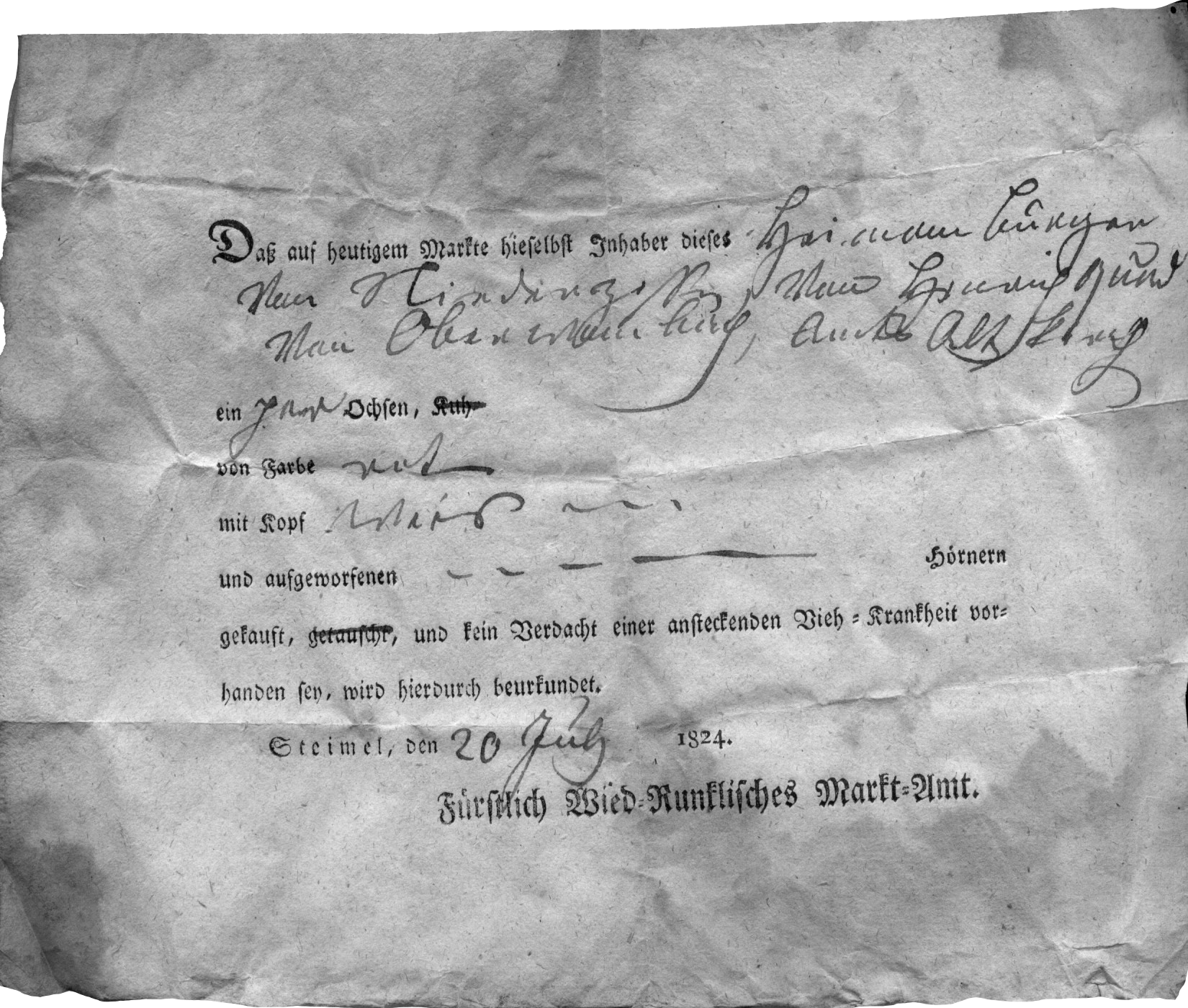Cattle Sale Contract
Since Jews were prohibited from entering any professions organized by guilds or take any government posts far into the 19thcentury, many of them were active in commerce. Among the Jews of Niederzissen, cattle trade was widespread until the rise of the Nazi regime. While trades were initially done by handwritten sales contracts, the modern Prussian system enforced the use of standardized blank forms for the same purpose from the beginning of the 19thcentury onward.
Title: Cattle Sale Contract
Date: July 20th, 1824.
Material: paper – form with handwritten entries.
Dimensions: 17,5 x 21 cm (6,9’’ x 8,2’’)
Creator: Heiman Berger
Sponsor: unknown

The Genizah contains many cattle contracts. The form shown here was used on the cattle market in Steimel, more than 50 kilometers (31 miles) away from Niederzissen. It certifies the purchase of two oxen by the cattle trader Heiman Berger from Niederzissen from the farmer Heinrich Grund of Oberwamberg. The cattle market in Steimel was appealing to Jewish traders from all over, since the small village, located in the former principality of Wied, pursued an economic policy based on religious tolerance towards Jews and other confessions.
Wording of the Sales Contract
It is hereby certified that on this market today the holder of this [contract], Heiman Berger of Niederzeßen has bought of Heinrich Gund of Oberwamberg in the department of Alt Kirch a pair of oxen of red color with white head and [?] horns, and there is no suspicion of any contagious cattle disease.
Steimel, July 20th, 1824
Princely Market-Department of Wied-Runkel
Further Reading:
Fischer, Stefanie. Ökonomisches Vertrauen und antisemitische Gewalt: Jüdische Viehhändler in Mittelfranken, 1919 – 1939. Hamburger Beiträge zur Geschichte der deutschen Juden, Vol. 42, Göttingen 2014.
